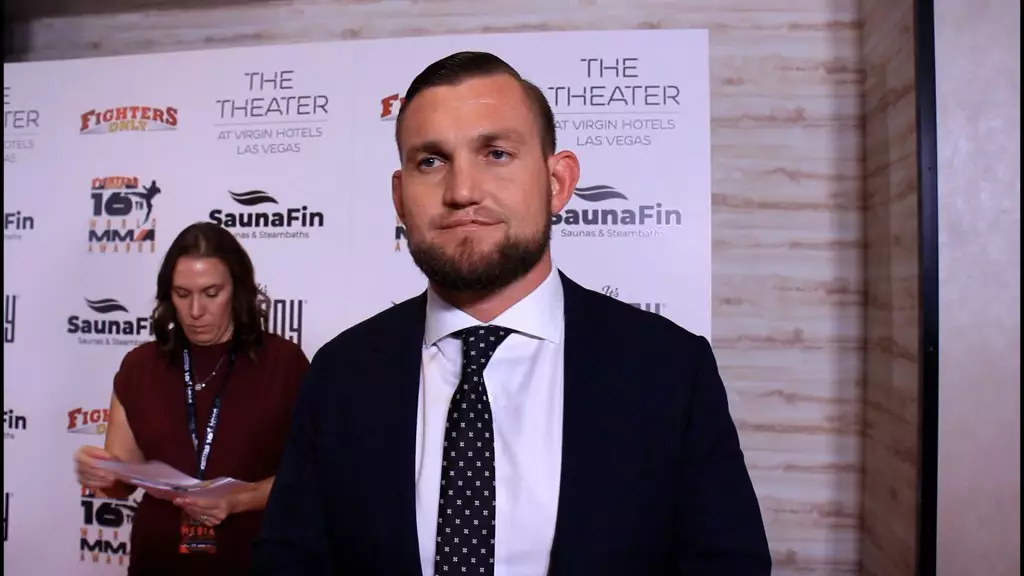In the brutal world of mixed martial arts, fighters face physical challenges that often extend far beyond the spotlight. Ian Heinisch, a once-promising competitor in the UFC, recently revealed the harsh realities of enduring brain trauma while striving for success in the sport. After years battling in the octagon, Heinisch made a pivotal decision to step away from MMA, a choice that not only reflects his personal struggles but also serves as a broader caution for fighters across the globe.
For nearly a year and a half, Ian Heinisch kept a heavy secret. While the public saw a dedicated athlete striving for greatness, behind the scenes, he was battling the debilitating effects of brain trauma. Often, athletes in high-contact sports downplay or even ignore the signs of injury, driven by a desire to maintain their competitiveness. However, Heinisch reached a tipping point when he had to withdraw from a planned fight due to persistent headaches, confusion, and even disorientation while driving. The pressure of performance was outweighed by the necessity of prioritizing his health, leading him to acknowledge the gravity of his condition.
This internal struggle exemplifies a common narrative among fighters, where the ambition to rise in the ranks can paradoxically promote a disregard for mental and physical well-being. Heinisch’s candid admission that he “hid it for probably a year-and-a-half” underscores a troubling culture in combat sports that often glorifies suffering and grit. The expectation to keep pushing through pain, though admirable in spirit, can have devastating long-term consequences.
Describing his hiatus as an “indefinite break” from MMA, Heinisch has come to terms with what he calls a retirement motivated primarily by the trauma he endured. Although stepping away from the sport he loved was agonizing, he recognized it as an essential move to reclaim his sense of normalcy. His decision was further supported by various treatments, including stem cell therapy, which he attributes significantly to his recovery process.
His journey brings to light the urgent need for greater awareness regarding mental health within the sporting world. Heinisch’s message serves as a beacon of hope for others grappling with similar challenges: “If you’re struggling with that, man, I’m telling you, rest your brain. It can heal, but you’ve got to let it rest.” This powerful call for recovery underscores the importance of prioritizing well-being above all else, especially in an environment where the stakes are high and consequences can be severe.
Interestingly, Heinisch’s experience extends beyond physical healing; it marks a transformation into a new chapter of life where he has begun to explore ventures outside of fighting. With newfound opportunities in cryptocurrency and business, he highlights a critical aspect of life beyond combat sports. The transition from athlete to entrepreneur can seem daunting, particularly for those who have dedicated their lives to the fight game. However, Heinisch embraces this shift, grateful for the platform his MMA career has provided him.
“My heart is still here for the people, and I love my journey,” he shared, highlighting a sense of gratitude despite the challenges he faced. This perspective showcases resilience, proving that adversity can pave the way for new opportunities. While not every athlete finds a successful path beyond fighting, Heinisch’s story serves as an example that life can flourish after the cage.
Ian Heinisch’s story is both personal and universal, shedding light on a critical issue of brain trauma in combat sports. With the increasing awareness of the risks associated with repeated head injuries, it is crucial for athletes, trainers, and organizations to prioritize education and prevention. As Heinisch has experienced firsthand, while passion for the sport is important, one’s health must always come first.
His journey is not merely a cautionary tale but also a source of inspiration, reminding current and future fighters of the importance of listening to their bodies. The lessons learned through Heinisch’s struggles can resonate deeply within the MMA community, advocating for a more supportive environment that prioritizes mental and physical wellness. Ultimately, the end of a fighting career does not signify the end of one’s identity; sometimes, it is merely the beginning of a new, more enriching path.

